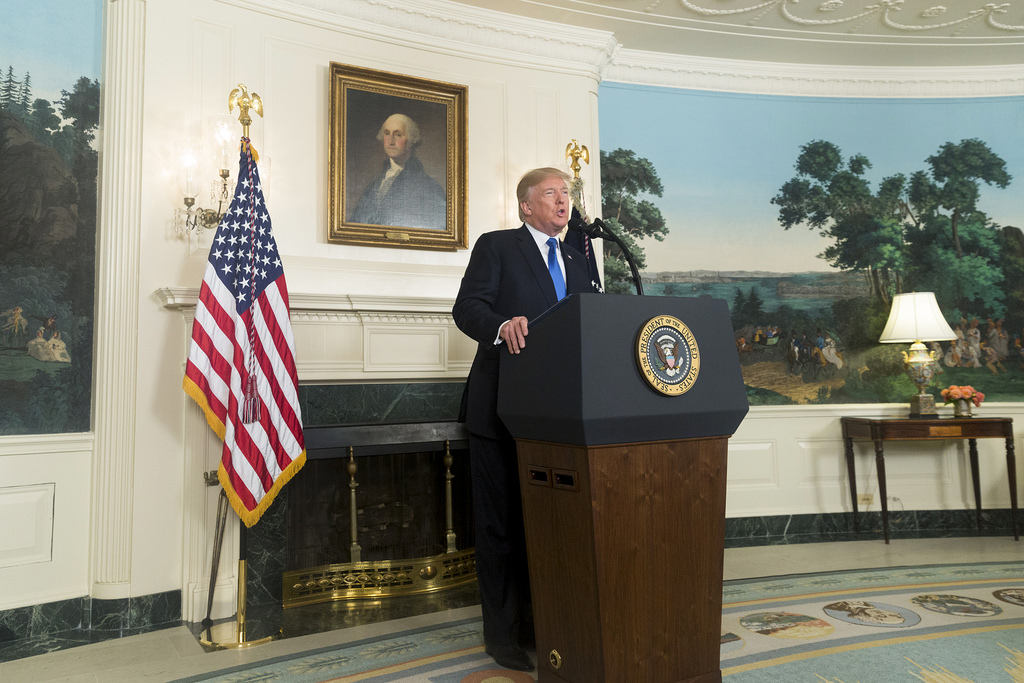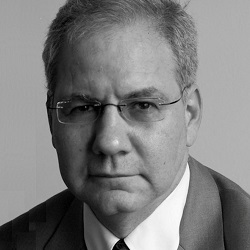Andrew C. McCarthy Changes His Tone on Obstruction of Justice
No sooner did the internet ink dry on my analysis of Andrew C.

Published by The Lawfare Institute
in Cooperation With

No sooner did the internet ink dry on my analysis of Andrew C. McCarthy’s vociferously expressed dismissal of the case that President Trump may have engaged in obstruction of justice than did a new McCarthy article appear on the same subject, entitled: “Is There an Obstruction Case Against President Trump?” Dated one day after my own, the piece doesn’t mention my article but makes a sharp bend in my direction. I don’t know if that allows it to qualify as a genuine subtweet, but whatever the case, I will set out McCarthy’s new position and briefly examine it.
McCarthy opens with a discussion of whether having a special counsel to investigate L’Affaire Russe is constitutionally permissible and of its value to the country. (Spoiler alert: He thinks it’s not permissible and not a good thing.) He then makes his way to obstruction, about which he poses a fundamental question: “May the president of the United States be charged with obstruction based on non-criminal discretionary acts that are unquestionably within his constitutional authority as chief executive?”
In answering this, McCarthy takes up two presidential acts that lie at the heart of the controversy: Trump asking FBI director James Comey to go easy on Trump’s former national security adviser Michael Flynn and Trump’s subsequent firing of Comey. After performing some analysis of both episodes, the answer McCarthy arrives at is that a president cannot be charged with obstruction in such instances. He also concludes that, in general, “I do not believe a president can commit an obstruction crime by lawful actions that are within his discretionary authority under the Constitution.”
McCarthy here draws a bright line, and bright lines always look appealing. However, one could imagine various lawful presidential acts that, taken in concert and mixed in with unlawful acts, might fall on the bad side of the line. Just to take one example: Trump firing Comey is permissible under the McCarthy rule as is Trump asking the FBI director go easy on Flynn. But Trump engaging in witness-tampering with Flynn is impermissible. Might the package of all three together, to a reasonable senator making judgment in an impeachment trial, amount to a pattern of obstruction? Perhaps.
One can also envision that a non-criminal discretionary lawful act could turn into the criminal act of obstruction if the president undertook the act with a criminal state of mind. Ascertaining someone’s state of mind is never an easy task for an investigator or prosecutor; we cannot peer into anyone’s brain. But such evidence is sometimes available.
Just such a case might be the letter drafted by Trump (at his New Jersey golf course with the assistance of Stephen Miller) explaining why he was firing Comey—which White House counsel Don McGahn then persuaded him not to send because it was improper. Was it improper because it revealed a criminal state of mind? Assuming for the sake of discussion that the answer is affirmative—that the letter expressed a desire to slow down or stop the FBI’s investigation of Trump’s own criminal wrongdoing during the campaign—would McCarthy’s bright line turn into a blur? Would such a letter persuade a reasonable senator in an impeachment trial that the firing of Comey was taken with an intent to obstruct justice? Quite possibly.
The most significant shift in McCarthy’s position does not concern these substantive points. Rather, it is tonal; instead of being cocksure, McCarthy has swung in the direction of tentativeness, asking the Office of Legal Counsel in the Justice Department to rule on the central question because, as he explains, his own opinion is only “worth what you’ve paid for it,” which—given that National Review’s website is free to access—is nothing. I hardly agree with that self-deprecating assessment. At the very least, McCarthy has helped to elucidate the subtleties of a genuinely complex constitutional question, one side of which he is no longer dismissing as “patently absurd” and “cockamamie.”





